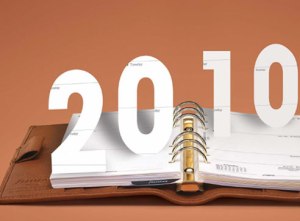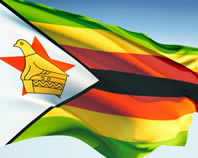 The Union of Great Zimbabweans. What a great idea when you take a glance at it, but when you stop to ponder the concept does it really stand up to the riggers of closer examination?
The Union of Great Zimbabweans. What a great idea when you take a glance at it, but when you stop to ponder the concept does it really stand up to the riggers of closer examination?
Great Zimbabweis forever ingrained in our memory as essentially the birth place of Zimbabwe. Our forefathers are intrinsically intertwined with this place be it as the mighty Matebele nation or the colonialists who visited Africa with the aim of colonisation on their agenda. It is the symbol of so much of our history and reminds us that Zimbabwe was once a monarchy too.
Today our borders encapsulate a diverse selection of tribes, people, nationalities and people. All walks of life thrive within a system that while disabled in many ways, is still a vibrant and colourful nation. The two largest tribes are the Shona and Matebele people. As a majority, the Shona currently rule the nation of the former Matebele kingdom, and British colonialist nation.
Zimbabwe in a sense is but a babe in arms as an Independent nation. Since April 1980 Robert Mugabe has clung to power at the helm of politics in Zimbabwe. It is for this very fact that we have seen the suppression of alternative political opposition on any front. From ZAPU to ZIMRA to ZUM, they have all faded into the woodwork, disappeared or been swallowed up. Even the MDC is in a power sharing agreement that is more of a farce than a happy hour in a brewery than a real progressive political coalition.
So it has been left primarily to Zimbabweans living in the diaspora to become adventurous and seek to step into the void of the political drought that faces the Zimbabwean people, the latest of which appears to be the Union of Great Zimbabweans.
Now initially when I first glanced at the name of the party, I mistakenly assumed that it was purhapse the launch of some form of historical information that charted the rise of people of influence within the young Zimbabwean Nation. People like the late Joshua Nkomo or Herbet Chitepo. Many names could be listed here as great or influential Zimbabweans and it was in this guise that I sort to see who had been listed.
 To my amazement I was to discover that this was infact the launch of a new political party seeking to challenge the existing power base in Zimbabwe’s national elections.
To my amazement I was to discover that this was infact the launch of a new political party seeking to challenge the existing power base in Zimbabwe’s national elections.
A very noble idea indeed, if it could be pulled off, and there are strong elements of their ethos that I agree with, yet some things that I’ve read that I do not understand, and would seek to debate if I were to seriously consider supporting this virgin Union in a national election.
While young and seeking to establish credibility, there is a lot of ground that the party needs to cover to show that it is serious about its aims and objectives, and capable of rising to the challenge of running a country should it ever come to pass that they succeed in their quest to run for parliament.
My first question would be who is who and who are the figure heads running the show? Who would we be looking to vote for? What are their credentials and what leads them to think that we would vote for them? It is a key factor in any party that its leadership is strong, credible and popular. As yet there is no indication from the Unionas to who plans to run for office in which capacity and who the team supporting this individual are. Such a statement would go a long way in putting the party firmly on the map as a viable alternative to ZANU PF or MDC.
It is also vital for the Union to have established links within its structure with the core elements of the Zimbabwean infrastructure. Representation within its ranks of the police, army, workers unions, farmers unions, charitable organisations as well as key supporters within the world of the celebrity will bulk up its appearance and reputation. It is critical to show as mature and logical approach to governance and law, and having key people in place who are already recognised within these areas, and established reputations shows theUnion’s power to bring Great Zimbabweans to the table.
As with any party of course is the every present question of the parties manifesto. While there is a good indication of what the Union seeks to stand for, there is little information about its covenant on how it will govern should it be elected to power. A strong, well worded and frank manifesto is paramount if The Union of Great Zimbabweans aims to get anywhere. Ultimately I would say that most Zimbabweans are sick and tired of big promises, broken promises, and promises in general. We are not looking to have our loyalty bought, we do not seek to be mislead with wild suggestions of riches and glory should we choose to vote, we just want logical, honest, simple words that show the Unions intention to address the fundamental issues that affect each of us on a day to day basis. Things like job creation and security, health services, education, the economy, international relations, wealth creation, immigration and tourism, internal security and law, the constitution and justice system, and all those little factors that may sway us as the general public in the Union’s direction.
Everyone is well aware of the devastation of the nation of Zimbabwe, and I do love the slogan that the Union of Great Zimbabwean’s uses when it says that the struggle for freedom was not against white injustice but against injustice period. While I totally accept that colonialism was wrong and the system by which the United Kingdom gained ownership of almost half the world was in many ways cruel, harmful and completely biased, I do strongly believe that the world has moved on, become more aware of each other, the effects of our actions on others and how we can learn to live together. I believe that this is one of the biggest issues that Zimbabwe needs to face as a nation. We all need to admit that the past is not our present, and today’s generations need to learn to live together to prosper. Carrying the hatred of transgressions from yesterday is not only destructive, it is against the biblical principle of forgiveness and it is in the long term counter productive.
One of the hardest hurdles for this colourful Union to cross is going to be creating its vision of a united Zimbabwe. Not only are their racial tensions that have been bred into the very fabric of Zimbabwe’s population, but there are even deeper rooted tribal issues that seek to be addressed and rectified. This is one area of concern that I will watch with keen interest as the party develops its agenda. I honestly believe that the true nature of the party will lie in its ability to address these two tightly coiled snakes. The triumph will be when The Union of Great Zimbabweans becomes the snake charmer and learns to keep the serpents firmly under their control.
Human injustice has been a massive problem in the young Zimbabwean nation, and its ability to confront this issue will also be an important test in establishing the credibility of the Union. So many people have fallen foul of the current regime and will be looking to any opposition to bring some form of justice to bear on the people who have robbed them of loved ones, land, livelihood and their future. Justice for these people is a can of worms that needs to be handles with sensitivity and strength for fear of reprisals or a weak stance on which road the party will take should it come to power will be a big influencing factor in how it is perceived by large sectors of the population.
I was a little mystified by theUnion’s idea of Federalisation of the Zimbabwean nation. This is a huge step and would need a complete reworking of the Zimbabwean constitution, the whole way that we do things, and a carefully planned program of how to roll out the changes. In my mind this concept is very westernised, and not necessarily the best plan of action for Zimbabwe. Yes it is a great concept in the greater scheme of things, as people accept a covenant of agreement in not only how to live within the law but with consideration for the best interests of each other and the nation. The devil in this case is in the detail, and the reality of how this concept would be put into action. It is a totally different concept of governance in an African environment and may be perceived as Western influences within the Party which long term may only thwart the efforts of what essentially is otherwise a very admirable Union of people.
At the very heart of their argument for a Federation is the idea that individual constituencies should be allowed to prosper from the resources and wealth within that community. The difficulty with this concept is the diverse differences of each area, and the wealth within these areas. Take for example the dyke system. This is a rich area of mineral wealth, rich farming lands, an area that enjoys good climate and substantial rainfall. In contrast vast tracts of the Matebeleland province are arid, lacking in efficient water provision and poor in mineral wealth. As it stands the nation of Zimbabwe runs on a unitary principal, and while purhapse this was introduced in colonial times as a method of divide and rule, my argument focuses in what I said earlier when I talked about learning to bring people together in unity and bridge the gap caused by both the colonial and subsequent ZANU PF rule. The idea of divide and conquer needs to be replaced with a nurturing spirit of togetherness and unity.
Zimbabweans are beautiful people. We are a fine example for the African nation of how society can survive under extreme conditions, be happy, robust, resourceful and resilient. Our nation in my somewhat biased opinion is one of the finest on the African continent. The beauty of our country reverberates in ones memory bringing to mind brilliant images of nature at its very finest. The wealth of our nation is easily able to sustain its people and create sustainable prosperity for all. There is more than enough when well managed and carefully maintained to keep the majority of the population in gainful employment, a roof over the heads of all, and more food than we need.
There are a multitude of reasons for our people to feel proud. Patriotism and pride in ones nation is at the very core of identity and Zimbabwean people should take pride in their ability to survive with a smile on their face, even in the face of criminal injustices and the worst adversity in living history. Our people are peaceful and sociable in this I fully agree with The Union of Great Zimbabweans. Our social infrastructure is unique, wonderful and amazing to learn about. It will be the ability to use these strengths to its advantage that will set this new party aside from our choices in the past. Through the use of creative and new ideas, this party has the chance to open the door to a beautiful future for our people. This responsibility lies heavy in the hands of those who are moulding and laying the building blocks of what could potentially be the most exciting development in Zimbabwean politics in the last 30 years.
 Why settle for second best? Why expect less than you deserve? Why be quiet when your rights have been infringed? Why go with the flow when it is more fitting to stand up against the tide of time?
Why settle for second best? Why expect less than you deserve? Why be quiet when your rights have been infringed? Why go with the flow when it is more fitting to stand up against the tide of time? For many years people couldn’t believe that social structures like Slavery, The Berlin Wall, The Iron Curtain, Apartheid and many other political theologies could fall apart and complete regime change could be lead from within. Yet history has shown us that establishments of power do not last forever, and every regime has a season during which it enjoys power, and a season during which the people living under its power rebel and rise up against the dictatorships that reign omnipotent over its people.
For many years people couldn’t believe that social structures like Slavery, The Berlin Wall, The Iron Curtain, Apartheid and many other political theologies could fall apart and complete regime change could be lead from within. Yet history has shown us that establishments of power do not last forever, and every regime has a season during which it enjoys power, and a season during which the people living under its power rebel and rise up against the dictatorships that reign omnipotent over its people. I have written a number of times about how Zimbabwean’s should unite and focus on a targeted theme of revival within our country through a unified call for change. I have been very much encouraged by the private mail I have received from many corners and people who would prefer not to be as outspoken on the issue of regime change in Zimbabwe, but I am furthermore encouraged to see how other African nations are using the power of social media networks to unite the people in Diaspora to bring about change within their own government.
I have written a number of times about how Zimbabwean’s should unite and focus on a targeted theme of revival within our country through a unified call for change. I have been very much encouraged by the private mail I have received from many corners and people who would prefer not to be as outspoken on the issue of regime change in Zimbabwe, but I am furthermore encouraged to see how other African nations are using the power of social media networks to unite the people in Diaspora to bring about change within their own government. So the MDC have boycotted the parliamentary cabinet in Zimbabwe in protest of the treatment of one if its key members of its own cabinet Roy Bennett who is currently on Police bail awaiting trial on charges of amassing arms of war.
So the MDC have boycotted the parliamentary cabinet in Zimbabwe in protest of the treatment of one if its key members of its own cabinet Roy Bennett who is currently on Police bail awaiting trial on charges of amassing arms of war. As 2010 looms, it is time for the Zimbabwean people to unite and become focused on one goal. The united call for the removal of Robert Mugabe and the Zanu PF one party state system of Government in Zimbabwe. Our call for free and fair elections, democracy and freedom of speech has never before been more needed by our nation, and never before have the Zimbabwean people been in such a powerful position to make this call felt all around the world.
As 2010 looms, it is time for the Zimbabwean people to unite and become focused on one goal. The united call for the removal of Robert Mugabe and the Zanu PF one party state system of Government in Zimbabwe. Our call for free and fair elections, democracy and freedom of speech has never before been more needed by our nation, and never before have the Zimbabwean people been in such a powerful position to make this call felt all around the world. I was interested to watch
I was interested to watch